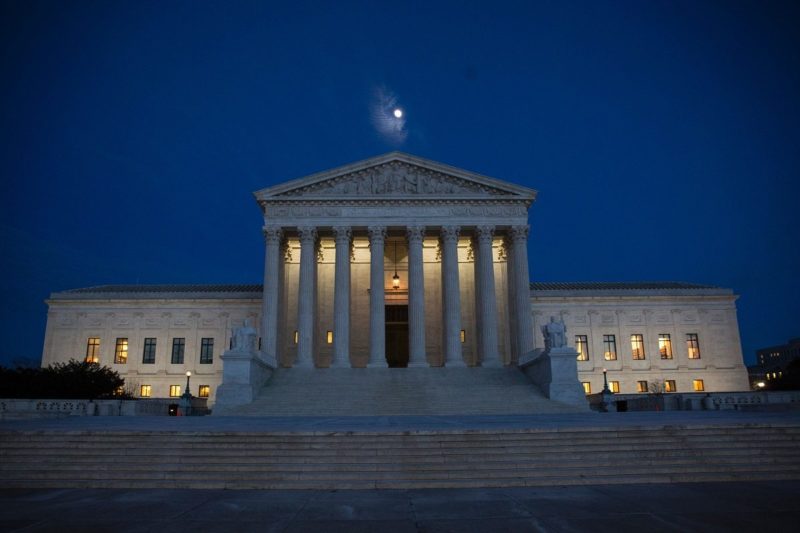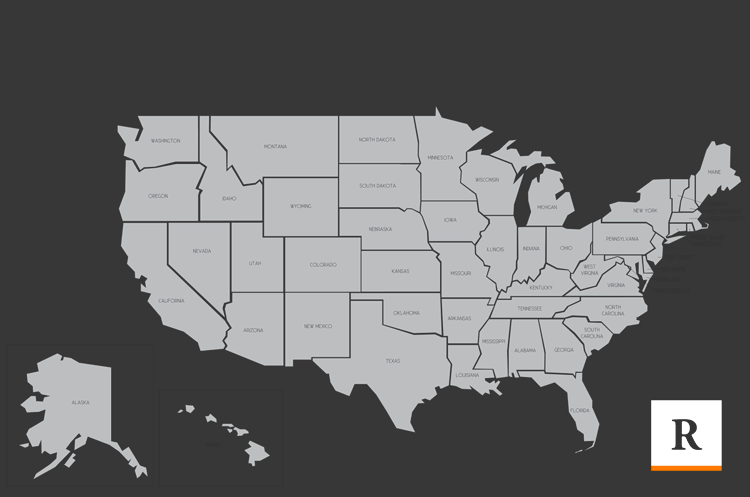What Would a ‘Roe’ Reversal Look Like in the Short and Long Term?
The anniversary of Roe v. Wade is a reminder that a lot more than abortion rights are at stake with the decision.

President-elect Donald Trump has repeatedly promised to appoint U.S. Supreme Court justices who would overturn Roe v. Wade. Thanks to the unprecedented obstruction of Merrick Garland, whom President Obama nominated last year to fill the seat left vacant by Justice Antonin Scalia’s sudden death, it appears Trump will get his chance to keep that promise.
But what does it mean, exactly, to appoint a justice that will overturn Roe?
In the short term, the promise to appoint a justice that would overturn Roe means nothing without a legal challenge that presents a direct challenge to its holding—later affirmed in Planned Parenthood v. Casey and Whole Woman’s Health v. Hellerstedt—that abortion is a fundamental right that the state cannot ban outright. Anti-choice lawmakers in states like Texas, Indiana, and Iowa are busy working on creating such a direct challenge now, either in the form of later abortion bans or measures that would outright criminalize abortion altogether. But so far, that direct challenge doesn’t exist.
In the long term, however, that could change. Should those challenges make their way up to the Supreme Court, Trump’s promise to overturn Roe could very well become reality.
Right now there are four states that have so-called trigger laws on the books that, should Roe be overturned, would immediately re-criminalize abortion: Louisiana, Mississippi, South Dakota, and North Dakota. That means these laws are designed to go into effect more or less the second Roe falls. Louisiana’s trigger law, for example, provides that the statute banning abortion will become “effective immediately” with “[a]ny decision of the United States Supreme Court which reverses, in whole or in part, Roe v. Wade … thereby, restoring to the state of Louisiana the authority to prohibit abortion,” or the “[a]doption of an amendment to the United States Constitution which, in whole or in part, restores to the state of Louisiana the authority to prohibit abortion.” Mississippi’s trigger law, meanwhile, would take effect within ten days of an official notice from the state’s attorney general’s office that Roe has been overturned.
The details of each trigger law may differ slightly, but the effect is all the same: As soon as it is legally possible, the legislation that makes getting or providing an abortion a crime becomes immediately enforceable.

Those four states are hardly the only ones where abortion rights would be immediately under threat should Roe fall. Currently 13 states have unconstitutional and unenforceable near-total criminal bans on abortion on the books. These zombie statutes are laws that outlawed or nearly outlawed abortion pre-Roe, which lawmakers either intentionally left in place or never got around to repealing. Those statutes would become re-animated and enforceable with either a Supreme Court decision that overturns Roe or a federal constitutional amendment establishing fetal “personhood.” These states include Wisconsin and Alabama. Louisiana has one as well, because its elected officials want to make it really clear that abortion will be a crime there as soon as possible.
Meanwhile, Missouri has a slightly different way of attempting to immediately criminalize abortion should Roe fall. The state has on its books legislative language known as the “Missouri Preamble,” which establishes so-called fetal personhood and could be the vehicle for promptly re-criminalizing abortion in that state. In 1986 the legislature passed a series of abortion restrictions, including a requirement that any doctor conduct a viability test prior to performing an abortion. The preamble to that statute—which was, incidentally, written in part by Trump’s chosen labor secretary, Andrew Puzder—includes the fetal personhood law, but also states that such fetal personhood is “subject only to the Constitution of the United States, and decisional interpretations thereof by the United States Supreme Court.” The requirements were ultimately struck down by the Supreme Court in Webster v. Reproductive Health Services, but the court punted on the constitutionality of the preamble’s language. Anti-choice advocates believe the preamble language carries enough legal weight to propose it as model anti-abortion legislation nationwide.
That’s not all. State legislative sessions are just starting to get underway, and already lawmakers in Texas, Indiana, Idaho, and Iowa are considering criminal abortion bans. If the past several legislative sessions are any guide, I would expect to see similar measures coming out of Oklahoma, Utah, and other states run by anti-choice lawmakers who have not been shy about their intent to end legal abortion in their states.
Those are just legislative examples of how abortion would be immediately, or almost immediately, criminalized should Roe fall. But it’s critical to remember that states are already punishing women and jailing them for failed pregnancy outcomes and attempts at self-induced terminations. Bei Bei Shuai and Purvi Patel from Indiana, Hope Ankron and Amanda Kimbrough from Alabama. Anna Yocca from Tennessee. Those women represent just a small handful of examples where law enforcement and prosecutors have intentionally used existing criminal laws such as child endangerment statutes to advance notions of fetal personhood and undermine constitutionally protected reproductive rights entirely.
So when Trump says he plans to appoint a Supreme Court justice that would overturn Roe and “send abortion back to the states,” it’s important reproductive rights advocates make very clear exactly what that means. In almost half the states in the country, abortion would either be immediately criminalized, or lawmakers would have the ability to begin enforcing otherwise unconstitutional near-total abortion bans.
It also means, fundamentally, that this country will have taken an enormous step backwards in the way it views the status of women in society. Roe v. Wade didn’t create out of thin air the right to an abortion. What the decision did was to further develop a line of jurisprudence that limits how far the state can go in regulating individual family matters. The right to an abortion comes as much from legal decisions ruling that parents largely have the right to educate their children as they see fit, thus allowing for homeschooling, as it does from Griswold v. Connecticut‘s ruling that married people can use contraception without threat of being arrested and jailed.
In other words, sending abortion back to the states would send a very clear signal that women are not full and equal citizens in this country because they do not share the same right of privacy as men do. It would similarly send a very clear signal to the LGBTQ community that their privacy rights are inferior as well, because an upending of Roe does not just mean the end to legal abortion. It means the ability of the state to re-enter all areas of privacy rights. We could see the return of anti-sodomy laws and the end of marriage equality. The kinds of “bathroom bills” targeting the transgender community in a handful of states could go nationwide, as legal protections for same-sex couples and the privacy rights of transgender people are all grounded in the same legal framework that protects the right to an abortion. Because those rights are woven together, the court can’t pick away at one without threatening to unravel them all.
Yes, Trump and conservatives have put Roe v. Wade in their sights, but it would be foolish to think they plan to stop there.
